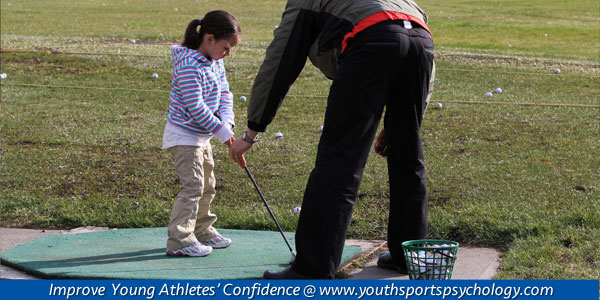Rory McIlroy’s Mental Game
US Open Champion Rory McIlroy’s recent experiences demonstrate just how critical the mental game is to athletes.
Golfer McIlroy had one of the worst days of his life in April. He shot a final round 80 at the 2011 Masters and blew a six-stroke final-round lead. Just two short months later, on June 19, he won the US Open and broke the 36-hole scoring record for the Open Championship. To make his comeback, McIlroy utilized critical mental game strategies to turn the Masters meltdown into a US Open triumph.
Blowing his 6-shot lead in the masters and losing that tournament could have zapped McIlroy’s confidence. Instead, he converted the loss into motivation to win.
McIlroy had the mental game smarts to avoid dwelling on his mistakes. As we’ve said before, dwelling on mistakes only hurts athletes’ confidence. If they dwell on their mistakes, they’ll start playing to AVOID making more mistakes. This is not a good strategy. Players do best if they take risks.
McIlroy understood this important sports psychology lesson, and focused on the positives. He turned his big mistakes into even bigger character-building lessons.
“I’ve got to take the positives, and the positives were I led this golf tournament for 63 holes,” said McIlroy in the pressroom after his final round at the Masters. “You know, I’ll have plenty more chances. I know that.”
Not only did McIlroy focus on the positives, he turned his negative experience into a commitment to win.
First, McIlroy’s plan was to have a “chip on his shoulder” and feel cocky inside the ropes. “I needed to be a little more cocky, a little more arrogant on the golf course, and think a little bit more about myself, which I’ve tried to incorporate a little bit, just on the golf course,” said McIlroy.
He also learned another important sports psychology lesson. Even though he’s got a big lead in a tournament, he needs to continue being aggressive. It’s not a good idea to play “protectively,” or to play to ensure you don’t lose what you’ve gained. You need to stay on the offense and keep pushing forward. If you sit on your lead, you focus too much on what NOT to do.
What’s more, McIlroy focused on mini-goals or process goals to keep his mind off the score. This helped him stay in the moment instead of thinking about his score.
In addition to staying in the moment, athletes need to ensure they maintain confidence when trying to finish off a win, says Cohn. That’s what McIlroy did.
“You have to just go out there, work hard, and believe in yourself. As long as you believe in yourself and believe that you’re doing the right things, that’s all you can really do,” McIlroy said in the media center after his win.
If you’d like to learn more sports psychology strategies, check out Kids’ Sports Psychology. Here are just a few of our resources:
- Growing from Adversity: How to Stay Confident After Failure, an
e-book for sports kids - Overcoming Adversity and Injury in Sports, an audio interview with Scott Smith, an internationally ranked US Figure skater.
- Kids’ Music Video: True Sports Stories of Commitment and Sacrifice, a music video
Plus many more e-books, audio interviews, videos, and articles!
Related Articles on Kids’ Mental Game:
- How Sports Kids Can Overcome Pandemic Anxiety
- Playing Through Adversity
- Help Sports Kids Grow From Adversity
*Subscribe to The Sports Psychology Podcast on iTunes
*Subscribe to The Sports Psychology Podcast on Spotify
The Composed Sports Kid

“The Composed Sports Kid” audio and workbook digital download program for young athletes and their parents or coach helps kids cope with frustration and anger in sports. Help your sports kids learn how to manage expectations and let go of mistakes so they can keep their head in the game.
The Composed Sports Kid system is really two programs in one–one program to train parents and coaches how to help their kids practice composure, and one program that teaches young athletes–ages 6 to 13–how to improve composure, let go of mistakes quickly, have more self-acceptance, and thus enjoy sports more!

